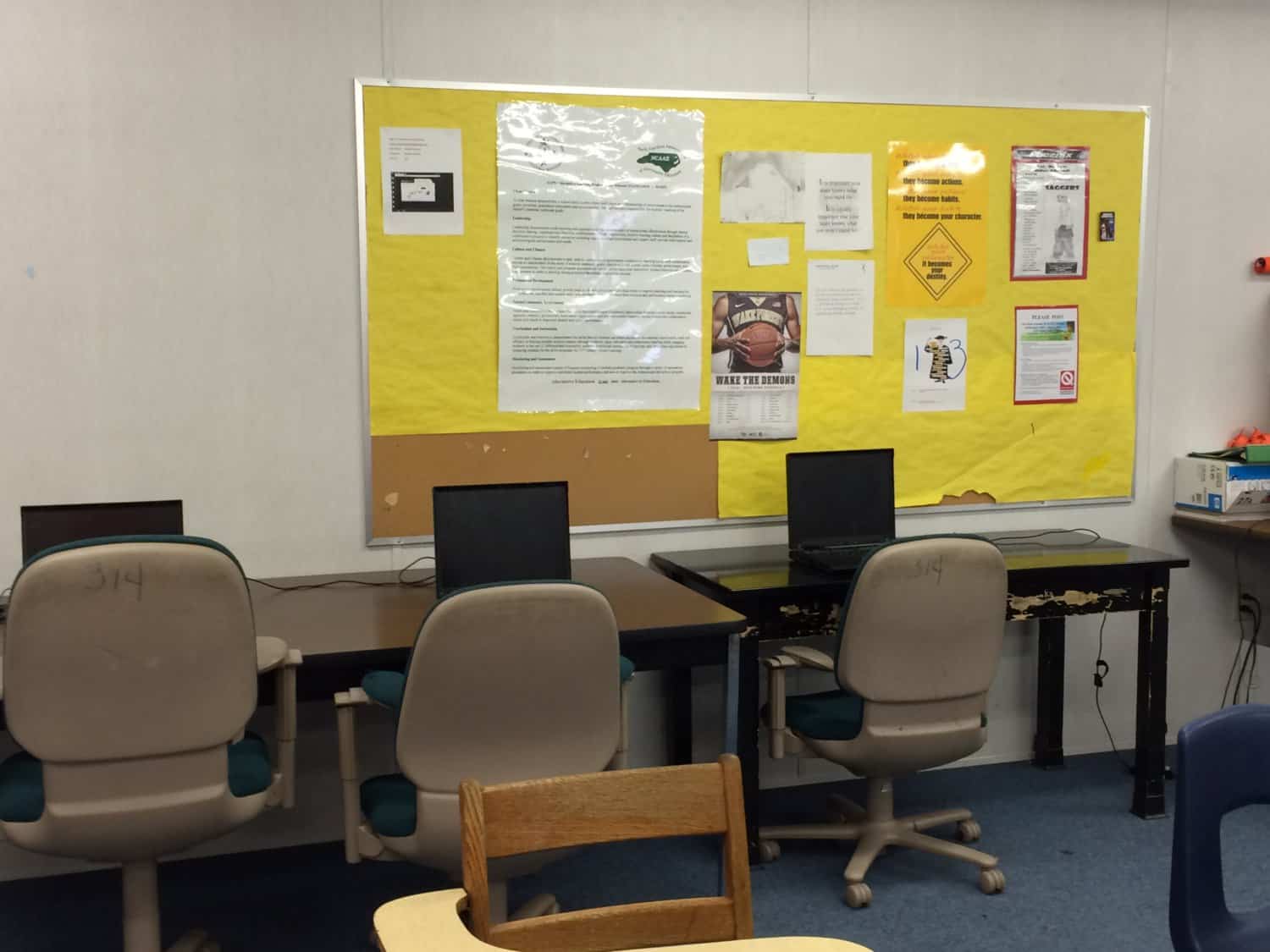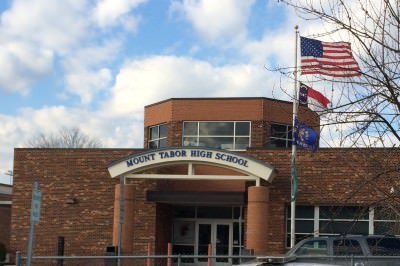North Carolina, let’s face it. We have an education crisis.
Politicians, bureaucrats, and activists are quick to proffer that public education is under assault in North Carolina. They angrily allege attacks on the teaching profession; furiously fight against school choice; and petulantly push back against real reform for our education system. But why is there no comparable outrage that last June, thousands of high school seniors received diplomas despite being woefully unprepared for college or the workforce?
We face a status quo education crisis in North Carolina. Too much testing. Teacher shortages. Perpetually underperforming schools. If we ignore this crisis, we betray thousands of students and teachers.
The education establishment and its political allies have one answer that they have pushed for the past 40 years – more money for more of the same.
What if, instead, we use this crisis as an opportunity to urgently transform public education?
Let’s take a hard look at what more of the same has gotten us.
Sixty percent of North Carolina fourth graders are not competent readers. Two-thirds of high school graduates who enter a two- or four-year institution cannot finish in less than six years. North Carolina public schools graduate 83 percent of African-American students, but only 35 percent of them can achieve at least the minimum ACT score to gain admission to the UNC system of colleges.
This upsetting list goes on and on while North Carolina education leaders brag that 86 percent of students receive a diploma.
That’s a great statistic until you know that nearly half of all those graduates fail to meet a single readiness benchmark on the ACT, almost half of all graduates who go to community college need to take remedial courses, and many employers say they can’t find good candidates due to a “lack of education credentials.” Eighty-six percent of North Carolina students might walk across a stage in June, but too many are not prepared for their next steps.
What can we do about it?
Most teachers and school leaders work tirelessly for their students despite the challenges. They are not to blame, and I am grateful to lawmakers in Raleigh (and my fellow board members in Forsyth County) for seeking much-needed, overdue raises for them. But no matter what we pay our educators, the system in which they teach is broken. Until we confront this fact, we limit the potential of our teachers and, sadly, of our students.
Ask any educator about how much time they are forced to stop teaching and focus on testing at the command of the NC Department of Public Instruction. Or what they are supposed to teach during the what-standards-are-we-using-now confusion. Or how much paperwork they must fill-out in addition to planning lessons, testing, grading papers and, oh yes, actually teaching.
Repeating the same thing, even with more money, will get us the same results. Why do our education leaders continue only to ask for more money? The hard truth is that it’s easier than actually looking for real solutions.
Real education reform is difficult and politically risky.
But if we won’t take risks for our students, what good is leadership?
We face this challenge here in Winston-Salem/Forsyth County Schools. Despite the hard work of staff at Cook Elementary, the reading proficiency for third grade through fifth grade is only ten percent. If we followed the status quo political model, we would simply demand more money and keep doing everything the same.
But that’s not leadership.
Instead, we’ve rolled up our sleeves and tried to figure out new strategies to achieve different, better results. When school started in August, we became home to the new “Cook Literacy Model School.” This program offers more instructional hours, a longer school year, more focused literacy programing, insightful professional development for teachers, curriculum and testing flexibility, and much more robust community outreach.
Why should we care?
The transformation of our public education system will open true pathways out of poverty.
Rather than criticize those who dare try something new and different, the education establishment and its aligned politicians should be fierce advocates of tearing down a broken system and rebuilding one with a shared passion for better education for all students.
Education is the great equalizer of opportunity. Every American should have the opportunity to work hard and reach their American Dream. A good education, whether it be vocational or college-prep, is the best pathway to such achievement. North Carolina’s constitution even mandates that its “people have a right to the privilege of education, and it is the duty of the State to guard and maintain that right.”
If a constitutional mandate cannot motivate people, then perhaps self-interest might. We can invest now, or pay a greater price later.
When we provide a great education, today’s students will be tomorrow’s entrepreneurs making their own wealth, buying their own homes, growing the economy, and being the best parents to their own students – fostering a cycle of success for future generations.
I believe we have a moral obligation to urgently solve this education crisis.
I think of the 17 year old 9th grader I taught at West Charlotte High School. He was usually more interested in skipping class than learning. One day, however, after seeing the rest of the class excited to be engaged, he wanted in and decided to work on his silent reading exercises. It’s a teacher’s dream moment, and I sought to contain my excitement as I handed him the 9th grade-level book. My excitement was short-lived when he waved me over a few minutes later. “Mr. Johnson, I can’t read these words.”
Shivers still crawl up my spine every time I remember the horrible look of defeat in his eyes. A teacher’s greatest moment became our greatest fear, realizing that the status quo had already failed this young man.
Let’s tackle this crisis together.
Reform efforts will benefit our most vulnerable students by allowing schools and local leaders more flexibility from state requirements just as we are for Cook Elementary School in Winston-Salem. Schools can focus on teachers, not testing; smart implementation of 21st century classroom technology; support for good local initiatives over bureaucratic commands; and providing meaningful diplomas.
We are blessed beyond measure to be citizens of the United States, the only nation ever to have a dream named after it. No matter who you are, your background, your neighborhood, or your race; you should be able to go to school, work hard, and reach your American Dream.
More of the same cannot be the only option for our students and educators. I propose we focus on College and Workforce Preparedness for students; 21st Century Education Innovation for teachers, and A New Education Direction for all of North Carolina.
Many different challenges face us, but let’s acknowledge the truth that our public education system needs to be transformed. Every day we do not, more teachers will quit and more students will be lost.



